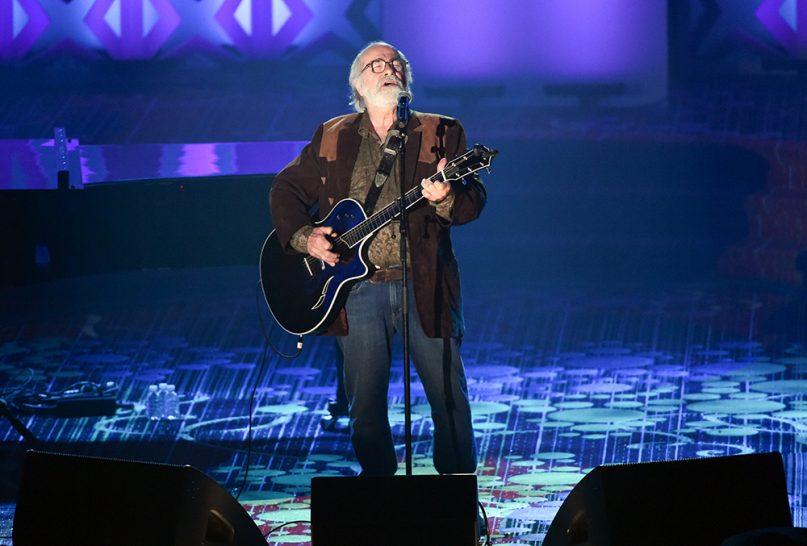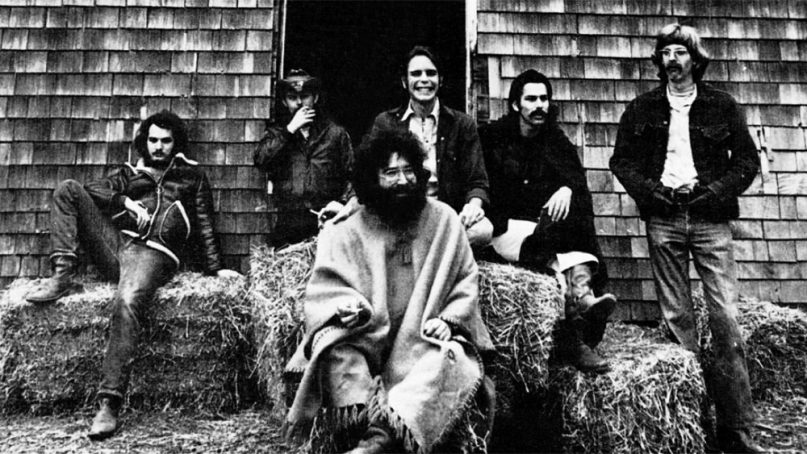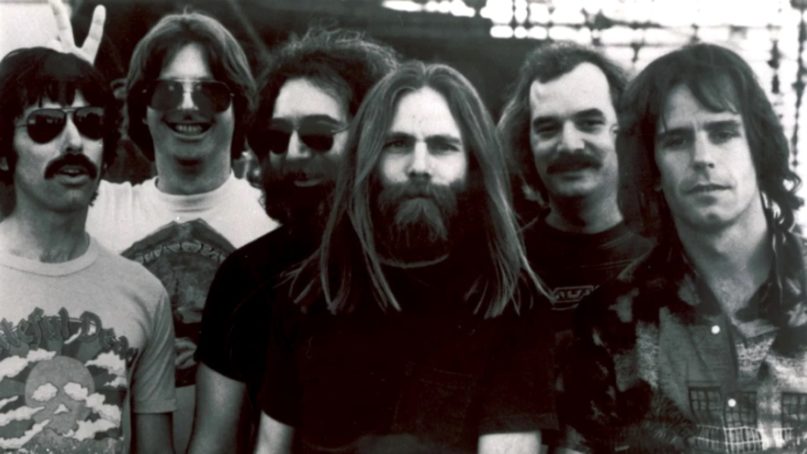(RNS) — One of the largest “churches” in America has no building.
Which is perfectly fine – because it has a liturgy; a sacred story; prophets and priests – and a congregation that numbers in the hundreds of thousands.
I am referring to the passionate devotees of a particular classic rock band – those whom we call Deadheads.
Deadheads worship the Grateful Dead. It began in the 1970s, when fans would travel any distance, for any length of time, to attend the band’s concerts.
Their minhag was to record concerts, to trade recordings with each other, to make set lists and to publish them and to trade them – to market among themselves tie-dyed T-shirts, veggie burritos – even to make an impact on the ice cream industry, with Ben & Jerry’s Cherry Garcia, named after the late leader of the group, Jerry Garcia.
The liturgy was the music itself. The invisible liturgy was that sense of being part of a tribe, that sense of being in a community.
Famous Deadheads include Tony Blair, Tucker Carlson, Bill Clinton, the late Steve Jobs, Stephen King, Sen. Patrick Leahy, former Sen. Harry Reid, House Speaker Nancy Pelosi.
Deadheads have their Yizkor moments: the death in 1973 of Ron “Pigpen” McKernan, original organist for the Dead; and of course, Garcia, who died in 1995.
But the most recent death has shaken Deadhead-dom – and beyond.

Honoree Robert Hunter performs at the 46th Annual Songwriters Hall Of Fame Induction and Awards Gala at the Marriott Marquis on June 18, 2015, in New York. (Photo by Evan Agostini/Invision/AP)
I refer to the death of the Grateful Dead’s lyricist, Robert Hunter, at the age of 78.
If the Dead was a religion, then Hunter was its psalmist.
What “admits” Hunter to this column? Was he Jewish?
For that matter, did Hunter have a religion? Did he have a religious vision?
If there could ever be such a thing as a universal religious vision, it appeared in his lyrics.
Take “Uncle John’s Band” (1970). It pains me to write this, so much on the heels of the death of the photographer, filmmaker, folklorist and folk musician John Cohen, the leader of the New Lost City Ramblers, who was my teacher at SUNY Purchase. By many accounts, John was the “Uncle John” of “Uncle John’s Band” (though it could have been Garcia, as well).
“Uncle John’s Band” is one of the Dead’s most famous and most-played songs. It is peppered with the names of old-time folk songs – “The Story the Crow Told Me,” recorded by the New Lost City Ramblers – and allusions to Emily Dickinson – “ain’t no time to hate … ”
Well the first days are the hardest days, don’t you worry any more,
Cause when life looks like easy street, there is danger at your door.
Think this through with me, let me know your mind,
Wo, oh, what I want to know, is are you kind?
When you really get down to it, isn’t that the first question that we would want to know about anyone? “Are you kind?” Do you have enough chesed, lovingkindness, within you?
While religions are different from each other — in stories, rituals, customs, etc. — ultimately we would want to know: Is the goal of that religion to produce people who are kind?
Next, consider “Box of Rain” (1970).
What do you want me to do, to do for you to see you through …
What do you want me to do, to watch for you while you’re sleeping?
Well please don’t be surprised, when you find me dreaming, too.
Walk into splintered sunlight
Inch your way through dead dreams
to another land
Maybe you’re tired and broken
Your tongue is twisted
with words half spoken
and thoughts unclear
What do you want me to do
to do for you to see you through
A box of rain will ease the pain
and love will see you through.
Hunter wrote the song for bassist Phil Lesh to sing to his dying father.
In a rock culture that is often reticent about death (with the exception of late 1950s-early 1960s “dying in car crash” songs), this is a poignant hymn of expectations of mortality.
Because, at the end of life, it is only love that sees us through.

The Grateful Dead in 1970. Photo courtesy of Creative Commons
And finally, the greatest – IMHO:
“Ripple” (1970). Check out this international version – it will move you immeasurably, and will testify to its hymnlike qualities.
Several years ago, I performed a funeral for a young man who died too young.
He was a Deadhead, and his family requested that I include a Dead song.
There was no contest. Here is “Ripple” in full:
If my words did glow with the gold of sunshine
And my tunes were played on the harp unstrung
Would you hear my voice come through the music
Would you hold it near as it were your own?
It’s a hand-me-down, the thoughts are broken
Perhaps they’re better left unsung
I don’t know, don’t really care
Let there be songs to fill the air
Ripple in still water
When there is no pebble tossed
Nor wind to blow
Reach out your hand
if your cup be empty
If your cup is full
may it be again
Let it be known there is a fountain
That was not made by the hands of men
There is a road, no simple highway
Between the dawn and the dark of night
And if you go no one may follow
That path is for your steps alone
You who choose to lead must follow
But if you fall you fall alone
If you should stand then who’s to guide you?
If I knew the way I would take you home.
Playing tunes on a harp unstrung? King David?
Cups that are empty, and might be full again? “My cup runneth over” from Psalm 23?
On my best days, this is what I believe.
When we reach out to each other, it is as if we are reaching out to God. God is the fountain of living waters — m’kor mayim chayim — that was not made by the hands of men. There is a repository of love. God is place of rest for our aching, yearning, journeying selves.
And, yes – if I knew the way, I would take you home.
As we Jews approach Rosh Hashana, our annual pilgrimage of the spirit – this I promise you all:
If I knew the way, I would take you home.






